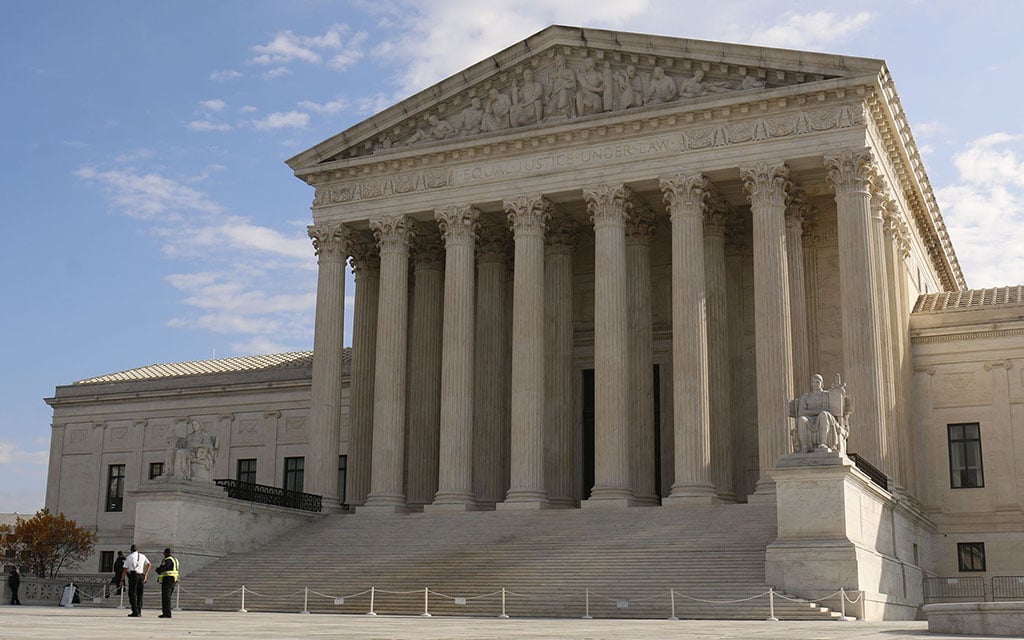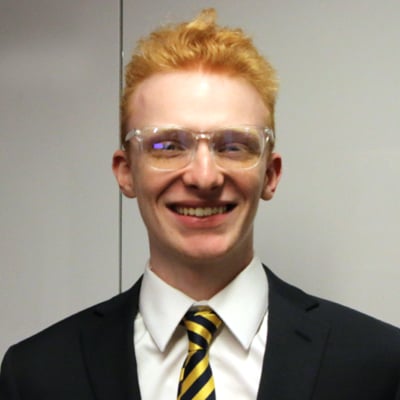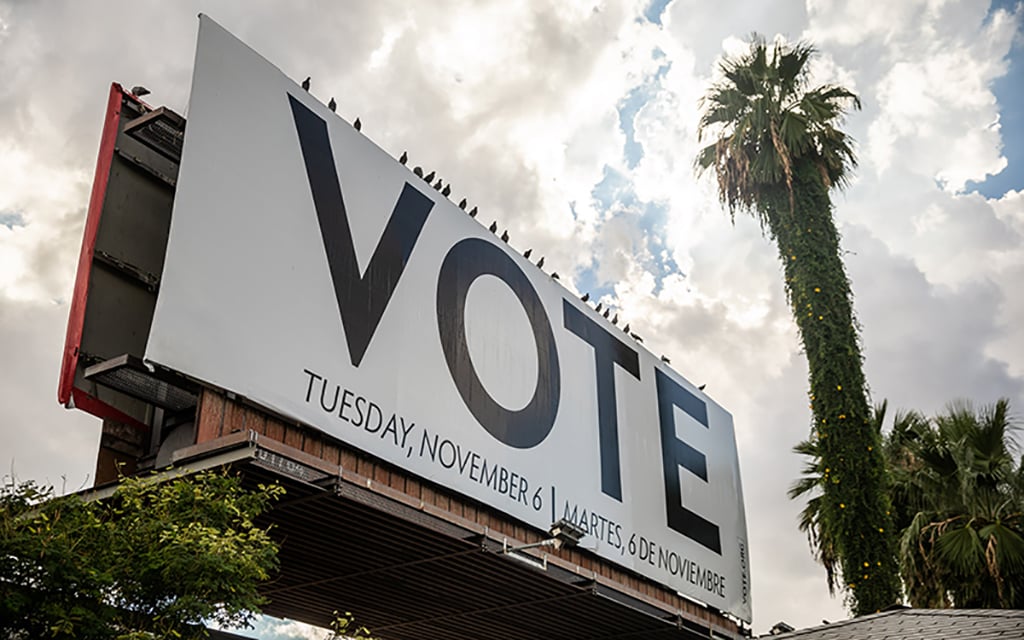
The Supreme Court considered whether a Yuma County defendant was denied his Sixth Amendment right to confront his accuser in 2021 when results of drug tests performed by one expert witness were introduced at his trial by another expert, reading from the report of the first. (File photo by Haley Smilow/Cronkite News)
WASHINGTON – Supreme Court justices grappled Wednesday with the question of when testimony from an expert crosses the line into evidence that a defendant should have the right to challenge in court.
The question arose in a Yuma County drug case where Jason Smith was convicted in part due to lab tests that were performed by Arizona Department of Public Safety forensic scientist Elizabeth Rast, but presented at trial by another expert, Greggory Longoni.
Smith’s attorneys say that violated his Sixth Amendment right to confront his accusers.
“Longoni had no personal knowledge of what Rast did in terms of her testing,” Hari Santhanam, one of Smith’s attorneys, told the justices Wednesday. “But what he did do was he conveyed Rast’s statements from her own documents, from her report and notes, where he conveyed specifically the tests that she performed, the specific items that she tested, the procedures that she used.
“When he purported to give his own opinions, Longoni was actually reciting verbatim the same statements that Rast made in her report to set forth her conclusions,” Santhanam said.
But the state argued that there were ways Smith could have attacked the expert testimony at his trial. Andrew Samuels, the principal deputy solicitor general for Arizona, said state law specifically allows evidence like Rast’s to be entered, not as fact, but to show how an expert like Longoni reached his opinion about the evidence.
“This court has long been clear, and petitioner I don’t think disputes, that evidence that is not offered for the truth of the matter asserted, is not offered to prove the truth of the matter asserted, does not implicate the confrontation clause,” Samuels said.
Smith said that Longoni was not acting as “a mere conduit for the conclusions of a testing expert like Rast,” but was testifying to his opinion, not as fact.
The case began in December 2019 when, according to court documents, Smith and two others were found inside a shed by officers from the Yuma County Narcotics Task Force. Officers said they found nearly 6 pounds of marijuana, methamphetamine, a meth pipe and other drug paraphernalia.
Smith claimed he was not involved in any illegal activity and was only there to care for his sick father. But he was convicted in October 2021 of two counts of possession and was sentenced to four years in prison.
Smith appealed his conviction, but it was upheld by the Arizona Court of Appeals in July 2022. The Arizona Supreme Court declined to take the case, leading Smith to appeal to the U.S. Supreme Court.
But some justices Wednesday had trouble concluding that these arguments wouldn’t have been presented as fact.
“The only thing that this (Longoni) testimony could have been offered for does seem to be the truth that Rast did these tests and found these results. And I’m just struggling with how is it not the truth,” Justice Neil Gorsuch said to Samuels.
The U.S. Solicitor General’s Office, which often sides with states when it intervenes in Supreme Court cases, instead sided Wednesday with Smith. But while Deputy Solicitor General Eric Feigin said Longoni “may have gone too far” in Smith’s case and presented his opinion as fact, he urged the court to exercise restraint in its ruling.
Feigin said that if the court said prosecutors could not have “even a ‘substitute expert’ … or if the court were to suggest that we really do need a parade of witnesses in these cases, I think it would get substantially worse.”
Santhanam argued that the court should “condemn this practice of using a substitute expert to convey testimonial statements.” He added, however, the court could write a narrower opinion that would not place an undue administrative burden on prosecutors.
Samuels said after the hearing that while he may have had some disagreements with a few of the justices, he believed the hearing went well.
“The core question in this case is whether the testing analyst is a witness against the defendant, as it says in the confrontation clause. Our view is that they weren’t,” Samuels said. “I think there is a core disagreement there, and I think there was a core disagreement with the justices of the court.”


